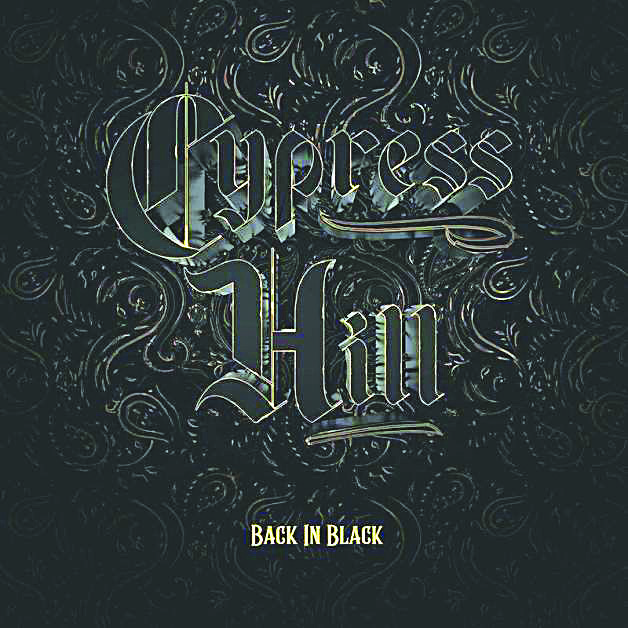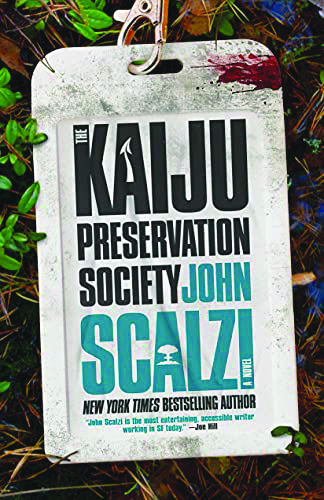Cypress Hill, Back In Black (Mnrk Records)
You have to admire the timing of this ’90s rap group’s latest release, given that the last Super Bowl halftime show was a showcase of that genre, and the rush will surely be on to revive the whole thing. And that’s OK with me, at least in the case of this crew, whose Latin-tinged cannabis anthem “Insane in the Brain” became a meme before there were memes (my favorite use of the song was its appearance in the movie Bulworth, if that matters to you). They released an album called Elephants on Acid a couple of years ago, in case you were too stoned to notice, but this LP brings them back to their OG roots. The songs aren’t total cartoons, which kind of detracts from the half-joke tunes I’d expected, but they’re definitely old-school, meant for sitting in a 1964 Lowrider and hoping there isn’t a cop within smelling distance. OK, there’s “Open Ya Mind,” which is more plugged into their sillier side, but the subject matter is serious, at least to them: Did you know that weed is still illegal in some parts of the U.S., which means some people will go to jail for it while others will make mad bank selling it? It’s true! B
Nazareth, Surviving The Law (Frontiers Music s.r.l.)
Holy crow, Scottish arena-metal dudes Nazareth, who are like one million years old, now hold the distinction of having the coolest album cover in history (the one for Hair Of The Dog, which is just endlessly fascinating) and the worst (this one). I was just Twittering with a few folks who agreed with me that the fadeout solo to HOTD’s “Changin’ Times” is the greatest solo ever, but that was back when this band was actually Nazareth. The only surviving original member is, as is always the case, the bass player, Pete Agnew; crazed-banshee-voiced singer Dan McCafferty died a couple of years ago and has been replaced by Carl Sentence, who sounds like a cross between Paul Stanley and David Whatsisface from Whitesnake. The guitar sound, courtesy of long-time new guy Jimmy Murrison, is blissfully heavy, and as for the tunes, they’re OK: Opener “Strange Days” is rote hair-metal; “You Gotta Pass It Around” wants to grow up to be Zep’s “When The Levee Breaks”; “Runaway” reminds us that band Fastway was once kind of awesome; “Better Leave It Out” pickpockets Living Colour’s “Cult Of Personality.” Above average stuff, all hail Naz (RIP). A-
PLAYLIST
• April 22 is a Friday, which means a bunch of new albums will be out, for your perusal, enjoyment and, mostly, general disappointment. But that’s being cynical, and I won’t be that today, because the summer is all but here, and when it comes I will be content, eating clams and french fries and random Doritos by the seashore, just looking at all the peeps and judging. But there is news in the world of rock ’n’ roll, because the quirky, half-cocked Australian psychedelic rock scene that was spearheaded by King Gizzard & the Lizard Wizard has another contender you’ve probably never heard of, namely the Psychedelic Porn Crumpets! Let’s welcome these Crumpets to our pages with our traditional first question, folks, ready: Just how bad is this band anyway? Well, I don’t know yet, but if they’re anything like King Gizzard & the Lizard Wizard, we can expect a band with the brains of Black Lips, the sloppiness of the guy who sings the “Rock ’n’ Roll McDonald’s” song from the documentary Supersize Me, and a lot of sub-Flaming Lips pseudo-psychedelic nonsense. But I’m getting ahead of myself, not that I don’t want this part to be over already, so let’s put this new album, Night Gnomes, on the barbie, like an Australian shrimp, and see if I can stand more than 10 seconds of whatever these guys are doing, what do you say? They’re influenced by Led Zeppelin, Black Sabbath, and The Beatles, which would normally herald a depleted-soil disaster if a bunch of millennials were trying to do it, but no, the single “Bubblegum Infinity” is pretty cool indeed, a grungy, high-octane cross between Oasis and early Soundgarden, kind of. Welcome to the pages of The Hippo, Psychedelic Porn Crumpets, I’m glad to have you aboard, but do keep in mind that it’ll be all downhill from here.
• I never really liked Bon Iver at all, but too bad for me, because here’s a new album from Bon Iver’s drummer and second-banana singer, S. Carey! His singing has been compared to — I hope you’re sitting down, folks — Beach Boy singer Brian Wilson, so I am sitting here with a barf bag nearby, ready to listen to the 42,000th hipster singer to ruin Beach Boys music for posterity. No, let’s not be like that, for all I know, this guy’s new album, Break Me Open, will amaze me; maybe it will dazzle me with totally not-awkward existentialism as experienced by overeducated dunces and enthrall me with its acumen. Here’s one of the songs, the title track, are you ready? OK, it’s sad and floaty and chill, and Carey sings like the Beach Boys of course. It is morose and sad, a tune that should be playing in the background as your girlfriend drives off in her 3-foot-long electric vehicle, looking at you sadly but determinedly, never to see you again. Brings a tear to my eye, folks, let’s move on.
• Right, then, here’s another Australian, a dream-pop singing girl called Hatchie, with her latest album, Giving The World Away. The single is called “Quicksand,” and it’s kind of nice, especially if you like Echosmith, because she sounds exactly like Sydney Sierota during the hook. I would call it influencer-technopop; it’s dreamy and catchy, meaning most people would like it, which of course makes me very suspicious.
• We’ll wrap up this week with Skinty Fia, the third LP from Irish post-punk band Fontaines D.C.! If you’re one of the five people who actually still watch the Tonight show, you saw these guys perform “Boys in the Better Land,” in 2019, but as for the here and now, the band’s new single “Jackie Down The Line” is a cross between Violent Femmes and Blur in mellow mode, meaning I have no use for it whatsoever.
If you’re in a local band, now’s a great time to let me know about your EP, your single, whatever’s on your mind. Let me know how you’re holding yourself together without being able to play shows or jam with your homies. Send a recipe for keema matar. Message me on Twitter (@esaeger) or Facebook (eric.saeger.9).






